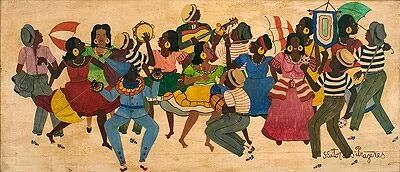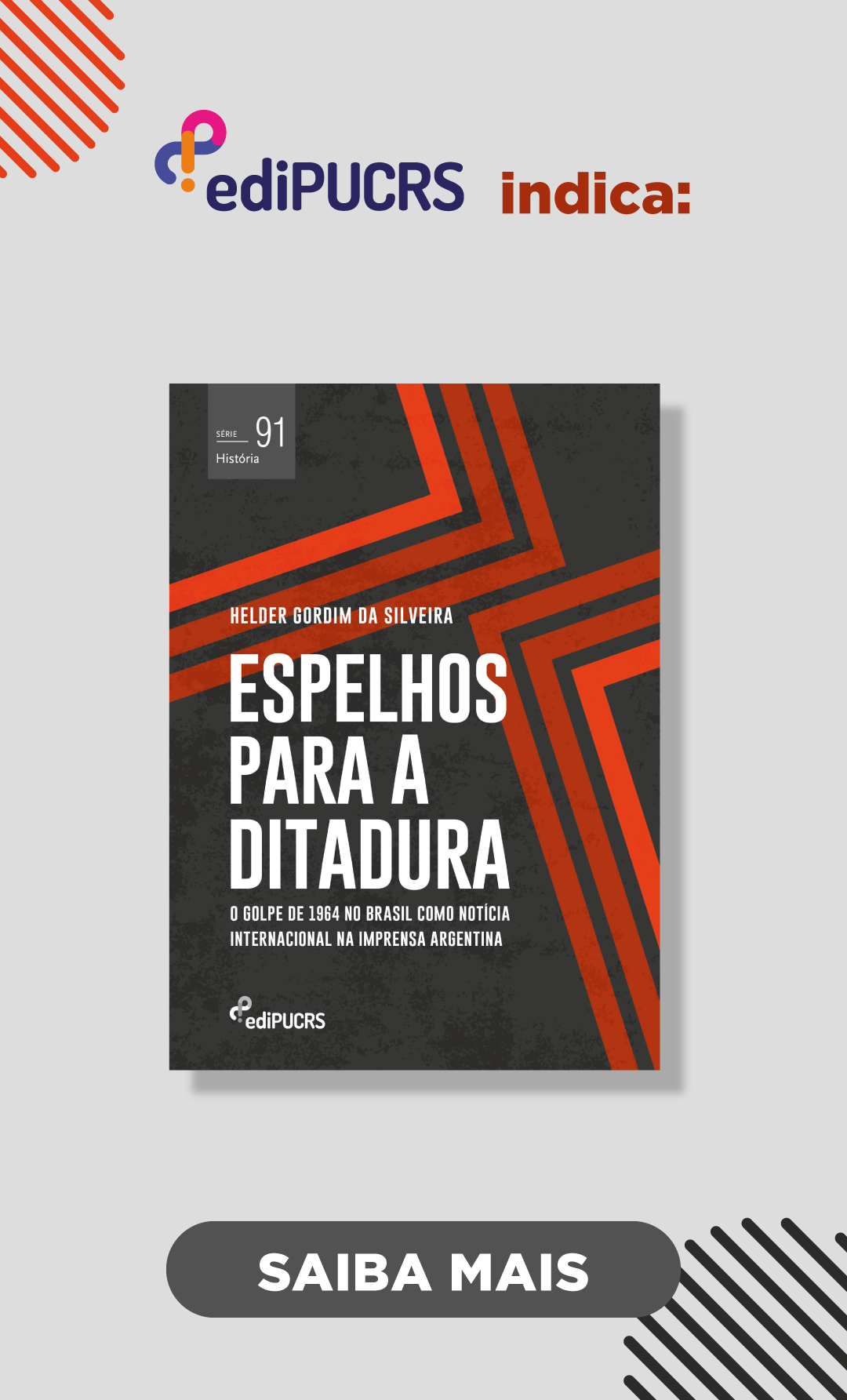Pós-colonialismo e o mundo plural na obra de Walter Mignolo
DOI:
https://doi.org/10.15448/2178-3748.2014.2.13670Keywords:
Pós-colonialismo. Eurocentrismo. Walter Mignolo.Abstract
Esse artigo pretende discutir a proposta de Walter Mignolo no que se refere aquilo que o autor chama de “descolonização”. O autor argentino Walter Mignolo está inserido no projeto de modernidade/colonialidade ao lado de outros autores latino-americanos das diversas áreas das ciências sociais como Artur Escobar, Edgardo Lander, Fernando Coronil e têm em Aníbal Quijano e Enrique Dussel as figuras que lideram esse projeto. Tais autores acusam a lógica da colonialidade existente nas relações sociais, políticas e econômicas que tiveram início na colonização da América no século dezesseis e se perpetuam até o presente e, mais importante: a colonialidade do conhecimento. Não só visando a constatação da colonialidade, o projeto intenta ir além da acusação: procura alternativas ao eurocentrismo e ao colonialismo no pensamento.Downloads
References
AHMAD, A.Postcolonial theory and the “–post” condition.Em: The Socialist Register. 1997.
ALKER, H. BIERSTEKER, T. The Dialetics of World Order: Notes for a Future Archeologist or International.Em: Der Derian, J. International Theory: Critical Investigations. Londres, Macmillan. 2005.
ALVARES, Claudia. Teoria pós-colonial, uma abordagem sintética. Em: Revista de Comunicação e Linguagens – Tendências da cultura contemporânea.Lisboa, Relógiod´Água.2000.
APPADURAI, Arjun. Grassroots globalization and the research imagination.Em: Public Culture, n.2o, vol.1. Duke University Press. 2000.
___________.Après le colonialisme. Paris, Gallimard. 2008.
ASHCROFT, B., GRIFFITHS, G. TIFFIN, H. (org.)The postcolonial studies reader.Londres, Routledge. 1995
BHABHA, H. K. The location of culture.Londres, Routledge. 1994.
________ . Signs taken for Wonder.Em: Ashcroft, B., Griffiths, G, Tiffin, H. The postcolonial studies reader.Londres, Routledge. 1995.
BULL, H. The theory of International Politics, 1919-1969.Em: Der Derian, J. International Theory: Critical Investigations. Londres, Macmillan. 20005.
CHAKRABARTY, D.Postcoloniality and the Artifice of History: Who speaks for ‘Indian’ Pasts”?Em: Representations, n.37. Special Issue: Imperial Fantasies and Postcolonial Histories. University of California Press.1992.
_____________ .A Small History of Subaltern Studies.Em: A Companion to postcolonial studies. Oxford, Blackwell Publishing. 2000.
____________ .Provincializing Europe.Postcolonial Thought and Historical Difference.Princeton, Princeton University Press. 2000.
CORONIL, F. Listening to the Subaltern: The Poetics of Neocolonial States.Em: Poetics Today, vol. 15, n. 4, Loci of Enunciation and Imaginary Constructions: the Case of (Latin) America. Duke University Press. 1994.
_________ .Beyond Occidentalism: Toward NonimperialGeohistorical Categories.Em: Cultural Anthropology, vol11, n.1. American Anthropological Association. 1996.
__________. Natureza do pós-colonialismo: do eurocentrismo ao globocentrismo. Em: Lander, E. A colonialidade do saber: eurocentrismo e ciências sociais. Perspectivaslatino-americanas. Buenos Aires, CLACSO. 2005.
DARBY, P. Postcolonizing the international. Working to change the way we are. Honolulu, University of Hawai´i Press. 2006.
DER DERIAN, J. Introduction: Critical Investigations.Em: Der Derain, J. (org). International Theory: Critical Investigations.London, Mcmillan. 2005.
DIRLIK, A.The Postcolonial Aura: Third World Criticism in the Age of Global Capitalism.Em: Critical Inquiry, n.20. 1994.
DUSSEL, E. Filosofia de Liberación.Mexico, Edicol. 1977.
__________.Europa, modernidade e eurocentrismo. Em: Lander, E (org.) A colonialidade do saber: eurocentrismo e ciências sociais. Perspectivas latino-americanas.Buenos Aires, CLACSO. 2005.
ESCOBAR, A.Encoutering Development.Princeton, Princeton University Press. 1995.
____________. Culture sits in places: reflections on globalism and subaltern strategies of location.Em: Political Geography, n.20.Elsevier.2001
FANON, F.Peaunoire, masques blancs.Paris, Seuil. 1952.
________. Lesdamnés de la terre.Paris, Maspéro. 1961.
FOUCAULT, M. Les mots et les choses.Paris, Gallimard. 1995.
GROSFOGUEL, R.La descolonización de la economia política y losestudiospostcoloniales: transmodernidad, pensamientofronteirizo y colonialidad global. Em: Tabula Rasa, n.4. Bogota. 2006.
GROVOGUI, S. N. Beyond eurocentrism and anarchy.Memories of International Order and Institutions.Nova York, Palgrave Macmillan. 2006.
GUHA, Ranajit.History at the limit of World-History. New York, Columbia University Press. 2002.
HALLIDAY, F.Rethinking international relations.Londres, Macmillan. 1994.
HOFFMAN, S.An American Social Science: International Relations.Em: Der Derian, J. (org). International Theory: Critical Investigations.Londres, Macmillan. 2005.
INAYATULLAH, N., BLANEY, D. International Relations and the problem of the difference.Londres, Routledge. 2004.
JONES, B.G. (org). Decolonizing International Relations.Lanham, Rowan &Littlefield. 2006.
LANDER, E.Ciências sociais: saberes coloniais e eurocêntricos. Em: Lander, E (org.) A colonialidade do saber: eurocentrismo e ciências sociais. Perspectivas latino-americanas. Buenos Aires, CLACSO. 2005.
MIGNOLO, W. Teorizar a traves de fronterasculturales.Em: Revista de Crítica LiterariaLatinoamericana, Ano 17, n.33. CELACP. 1991.
__________. Colonial and post-colonial discourse: cultural critique or academic colonialism?Em: Latin American Research Review, vol. 23, n. 3.The Latin American Studies Association. 1993.
__________. Local Histories/Global Designs: Essays on the Coloniality of Power, Subaltern Knowledge andr Border Thinking.Princeton, Princeton University Press. 2000.
___________. The many faces of cosmo-polis: border thinking and critical cosmopolitanism. Em: Public Culture, n. 12, vol. 3. Duke University Press. 2000.
___________. The Idea of Latin America. Oxford, Blackwell Publisging. 2005.
___________. Human understanding and (latin) american interests – the politics and the sensibilities of geohistorical locations.Em: A Companion to postcolonial studies. Oxford, Blackwell Publishing. 2005.
___________. Citizenship, knowledge and the limits of humanity.Oxford, Oxford University Press. 2006.
___________. Delinking. The rethoric of modernity, the logic of coloniality and the grammar of de-coloniality.Em: Cultural studies, n. 21, vols 2 e 3. Routledge.2007.
NEUFELD, M. Beyond (Western) International Relations Theory: the post-colonial tradition and the Restructuring of (Critical) IR Theory: Five Theses.Em: Center for the Critical Study of Global Power and Politics.Ontario, Trent University. 2009.
QUIJANO, A.Raza, Etnia y Nación em Mariátegui: cuestionesabiertas. Em: Morgues, R. (org.) Mariátegui y Europa: El Outro Aspecto delDescubrimiento. Lima, Editora Amauta. 1993.
________.El fantasma deldesarollo em America Latina.Em: Revista Venezolana de Economía y CienciasSociales. Vol.6, n.2.2000.
________. Colonialidade do poder, eurocentrismo e América Latina.Em: Lander, E. A colonialidade do saber: eurocentrismo e ciências sociais. Perspectivas latino-americanas. Buenos Aires, CLACSO. 2005.
SAID, E. Orientalismo: o Oriente como invenção do Ocidente. São Paulo, Companhia de Bolso. 2007.
________. Cultura e Imperialismo.São Paulo, Companhia das Letras. 2011.
SANTOS, B. de S. Entre o próspero e o Caliban: Colonialismo, Pós-Colonialismo e interidentidade. Em: Ramalho, I, Ribeiro, A.S. (orgs.) Entre ser e estar: Raízes, Percursos e Discursos da Identidade. Porto, Afrontamento. 2001.
_________. Do Pós-Moderno ao Pós-Colonial. E para além de um e outro. Centro de Estudos Sociais, Universidade do Minho. 2004.
_________. A universidade no século XXI: para uma reforma democrática e emancipatória da Universidade.São Paulo, Cortez Editora. 2005.
_________. O Fórum Social Mundial: manual de uso. São Paulo, Cortez Editora. 2005.
SPIVAK, G.C. Can the subaltern Speak? Em: Ashcroft, B., Griffiths, G, Tiffin, H. The postcolonial studies reader.Londres, Routledge. 1988.
Downloads
Published
How to Cite
Issue
Section
License
Copyright
The submission of originals to Oficina do Historiador implies the transfer by the authors of the right for publication. Authors retain copyright and grant the journal right of first publication. If the authors wish to include the same data into another publication, they must cite Oficina do Historiador as the site of original publication.
Creative Commons License
Except where otherwise specified, material published in this journal is licensed under a Creative Commons Attribution 4.0 International license, which allows unrestricted use, distribution and reproduction in any medium, provided the original publication is correctly cited.






